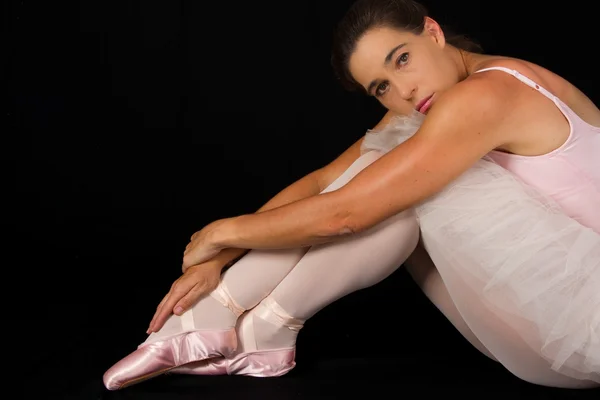Although dancing is a great activity and job that enhances physical and mental well-being, it is also one of the most demanding jobs (if you are a professional dancer), which can take a toll on the mental health of professional dancers.
ONE study has linked professional dancing to increased risks for mental health issues such as anxiety, eating disorders and obsessive-compulsive disorders. The idea of perfectionism in professional dancing has crippled the mental health of many.
Most dancers have to resort to harmful drugs to fuel their quest for perfection. In the end they become dependent. According to a overview75% of dancers had reported experiencing mental health challenges within five years (at the time of this survey).
As a dancer, your mental health is a priority. when disrupted, it affects your overall functioning. When you are tense, you tend to remember or execute your dance routine correctly.
You need to know what mental health tips to use to boost your overall performance as a dancer. This article looks at some critical mental health tips for dancers.
10 Mental Health Tips for Dancers
Below are some important mental health tips for dancers.
1. Learn to get enough sleep
It is said that a person spends thirty-six percent of their life sleeping, and how does that affect a dancer? Sleep rejuvenates your body, improves your alertness and concentration, provides memory consolidation and restores your strength.
Most importantly, getting enough sleep helps with weight loss, and weight gain is not pleasant for dancers.
Most dancers tend to resort to weight loss pills to lose weight when bulking up, especially ballet dancers. This can cause them anxiety and depression.
It is recommended that every dancer sleep at least 7 to 8 hours a day.
2. Maintain a positive body image
Maintaining a positive body image is an effective mental health tip for enhancing a dancer’s emotional health.
Dancers are athletes who need strength and muscle to perform. without stable emotional health, they will lack the strength and zeal to perform.
Also, maintaining a positive body image makes a dancer more confident in their body, greatly increasing body flexibility and strength. You can also engage in other exercises, besides dancing, that will help you achieve this.
3. Eat healthy meals
Healthy meals are not just a physical and physical health requirement. they also affect the dancer’s mental health.
Good food plays a huge role in promoting overall well-being. As a dancer, look to foods high in fiber, protein and low in carbohydrates for strength.
Avoid skipping meals and avoid eating highly processed foods. Highly processed foods tend to cause eating disorders that can affect you mentally. Meal planning can help you stick to a healthy diet.
5. Treat all forms of injuries promptly
As a dancer, never ignore any injury in your body. you can’t dance through it. There is nothing like “dancing through the injury/problem.”
Apart from causing pain in your body which can affect your body’s flexibility, it causes you distress and sadness which is bad for your concentration.
There is nothing wrong with notifying your coach or teacher of the injury and taking time to heal and rest. An injured dancer is not a happy dancer and a happy dancer will not be able to perform because dance is an athletic activity that makes you emotionally connected to the act.
Your mind needs to be relaxed to make those moves and give those awesome facial expressions.
6. Dance for fun
Take the time to dance just for the sheer joy of it, without worrying about perfecting every move or preparing for a performance.
This helps you reconnect with your original love and passion for dance, making it a source of happiness rather than stress.
Doing this can reduce burnout and remind you why you started dancing in the first place. It allows you to enjoy the moment, which can significantly boost your mood and overall mental well-being.
7. Have a support system around you
Build a network of friends, family and fellow dancers who understand the challenges and pressures of being a dancer. These people can offer emotional support, advice and encouragement when you need it.
Having a strong support system can help you feel understood and less isolated. It provides a safe space to share your struggles and successes, which is vital to maintaining good mental health.
8. Positive self-talk
Make it a habit to speak kindly to yourself. When negative thoughts arise, counter them with positive affirmations such as:Every day I improve,” the “I am proud of my progress.”
Positive self-talk can boost your self-esteem and resilience. It helps you stay motivated and focused, reducing the impact of self-doubt and anxiety.
9. Description
Write down your thoughts, feelings and experiences related to your dance journey. This can include your daily practices, achievements, and even your disappointments.
Journaling allows you to process your feelings and reflect on your progress. It can be a therapeutic way to express yourself and track your growth, helping you stay grounded and aware of your mental and emotional state.
10. Talk to a therapist
Due to the competitive nature of dance, most professional dancers tend to be very nervous and anxious at the start of a competition, which can affect their mental state.
If you feel overwhelmed in your mind, see a therapist or coach and talk to them. Don’t lock yourself in. When you speak, they can help you.
conclusion
As a dancer, your mental health is a priority and treated as such. Stay away from negativity and never allow depressing thoughts about how perfect you are to get in your way.
Always embrace the journey. you don’t have to be perfect at all times. When you make a mistake, accept it and improve without beating yourself up.
